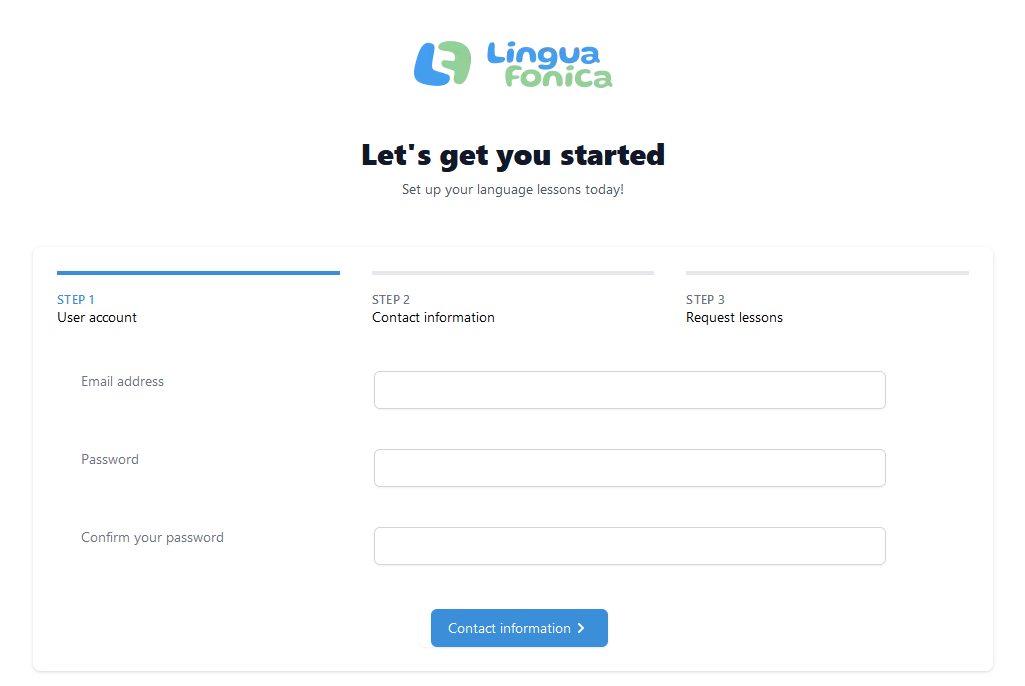Why you should consider learning English online with native speakers.
July 4, 2022
There are many benefits to learning English online with native speakers. Lingua Fonica can help you find a tutor who meets your needs, which can differ depending on what kind of English you want to learn. Are you going to the US? The UK? Canada? India? Kenya? Australia? It’s important for you to think about what your language learning needs and goals are as you decide who to study with. Tutors can help you not only with language learning, but also with cultural information and insights that can be invaluable as you travel, do business, and study, interacting with people from different places with different cultural nuances.
Learning English with a native speaker will let you hear and imitate the most authentic accent. It will also give you access to a bank of idioms and slang that non-native speakers may not know, unless they have been living in the country for a long time. Language learning at the lower levels does not require a native speaker, but as you get into more advanced classes it becomes important. Even at the lower levels, it can be valuable to learn English with a native speaker because as a learner, you will imitate the cadence, syllabication, emphasis, and accent of your teacher and need to keep that in mind when selecting one.
Native speakers may not always be grammatically correct. This can give you a more authentic understanding of how language is used in practice. When non-native speakers learn a language, they often start by memorizing grammar rules and are more likely to be technically correct. For example, in English, “good” is an adjective and “well” is an adverb. But you will often hear native speakers say grammatically incorrect things like “He did good.” However, this has become acceptable as its usage is widespread. There is also often a difference between spoken and written language that a native speaker is more likely to be attuned to.
Similarly, as more people use the pronoun “they” to refer to themselves as a singular person, it’s important to keep in mind that subject-verb agreement doesn’t always work anymore. Native speakers who are used to talking about non-binary people won’t be bothered by the seeming non-agreement in the same way as learners who focus on grammatical correctness and following the rules they learned. For example, the APA website uses the sentence “Each student submitted their portfolio to the committee.” “Each student“ is singular, but saying “his or her portfolio” brings unnecessary attention to gender and excludes non-binary people.
Online learning lets you connect with a tutor who meets your specific needs, regardless of where they are located, assuming you can work around whatever time difference exists. The online learning platforms also allow some benefits you can’t get face-to-face, such as watching the tutor's mouth up close as they form the sounds. It’s important to be able to see this, especially if the language you are learning includes sounds that are not used in your native language. For example, Japanese learners of English often struggle with differentiating between the sounds “l” and “r” because those sounds are not distinct in Japanese. Seeing how the mouth moves as they are formed can be helpful. It’s also possible to see the teacher write or type the letters and words and they can pull up and share video or audio files that can be shared so you can use them again on your own time to practice. We’ve learned a lot about teaching and learning online these last few years, and language is one of the fields it’s worked very well in. Many face-to-face language teachers are now supplementing their in-class time with online assignments, office hours, and course materials.
In this post, I’ve explained why you should consider learning English online with native speakers. Now it’s time to get started!
Written By
Kristen
Ready to begin your journey?Schedule your first lesson now

